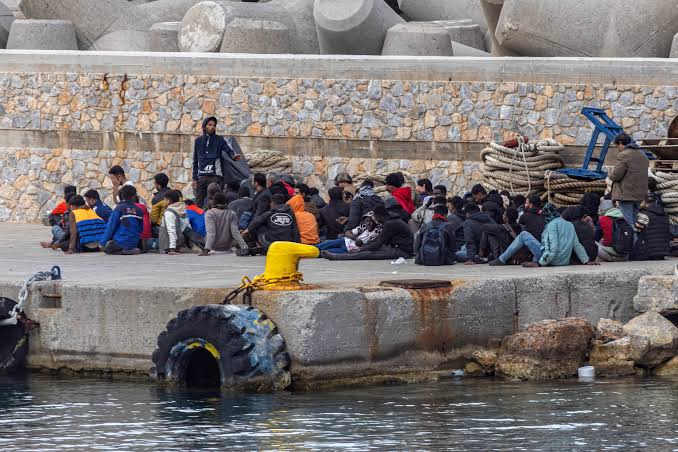Greece is preparing new legislation to introduce tougher penalties for rejected asylum seekers and accelerate their return to their countries of origin, Prime Minister Kyriakos Mitsotakis announced on Wednesday. The move reflects the government’s commitment to a stricter stance on migration, a politically sensitive issue in the country.
As a Mediterranean nation, Greece was at the forefront of the 2015-2016 migration crisis, during which over a million people fleeing war and poverty in the Middle East and Africa entered Europe through its borders. The influx of migrants prompted calls for countries on Europe’s southern periphery, including Greece and Italy, to reinforce their border security.
While the number of migrant arrivals has decreased since the peak of the crisis, migration remains a contentious political issue in Greece. Prime Minister Mitsotakis has consistently pledged to adopt a more stringent approach to managing migration flows.
Read more:Human Rights Watch Report: Press Freedom Stifled in Greece
“Penalties will be heavier for those who enter the country illegally or stay in our country if their asylum application is being rejected,” Mitsotakis stated during a cabinet meeting on Wednesday, where the new draft law on illegal migration was discussed.
Mitsotakis added that the proposed legislation aims to expedite returns through a “more effective and fair mechanism.” The regulations will require approval from the Greek parliament before they can be implemented.
Migrant flows to Greece have decreased by 30% in the first four months of this year compared to the same period last year, primarily due to a reduction in arrivals along its eastern border with Turkey. However, sea arrivals from Libya to the islands of Crete and Gavdos, located further from the mainland, have increased in recent months, indicating the emergence of a new smuggling route across the Mediterranean Sea. Thousands of rejected asylum seekers remain stranded in Greece, posing a challenge to the country’s asylum system.
In a related development, the European Union’s executive branch recently proposed amending European law to allow member states to deport rejected asylum seekers to third countries deemed safe by the bloc. This proposal aims to accelerate asylum processes and alleviate pressure on asylum systems across the EU.



